Imam Hussein (AS), the second child of the first Imam, Hazrat Ali (AS), and his 72 loyal companions were martyred in Karbala in the year 680 C.E. by an army dispatched by Yazid, a cruel Umayyad caliph.
Following his father’s martyrdom, Imam Hussein (AS), who knew that the Umayyad rulers did not correctly observe the tenets of Islam, tried to correct their deviations.
Twenty years later, he set out for
The small caravan of Imam Hussein (AS), whose members ranged in age from six-month-old infants and to 90-year-old men, left the Hijaz, in modern-day
The leaders of several of
The prominent citizens of Kufa were not happy with the Umayyad caliphs’ actions and the sociopolitical conditions of the time, and they reached the conclusion that Imam Hussein (AS) was the most qualified to be the successor of the Prophet (S) and asked him to depart from Hijaz for
After the leaders of Kufa betrayed him, Imam Hussein (AS) had no alternative besides steering the caravan toward
On a scorching summer day, nearly 30,000 soldiers of Yazid Ibn Muawiya surrounded the tents of Imam Hussein (AS) and his caravan, and blocked their access to water.
In his unique sermon on Ashura, Imam Hussein (AS) told Yazid’s soldiers, who were led by Omar ibn Saad, about the repercussions of killing the relatives of Prophet Mohammad (S) and invited them to follow the tenets of Islam and to avoid committing acts of oppression.
But the mission of Ibn Saad, a mercenary of Yazid and Ibn Ziyad, was to force Imam Hussein (AS) to recognize Yazid as the legitimate caliph.
Imam Hussein (AS), who planned to help the Muslims free themselves of the Umayyad dynasty’s cruelty, did not pledge allegiance to Yazid, and Yazid’s soldiers then attacked the Imam and his loyal followers.
Although the companions of Imam Hussein (AS) had been completely surrounded and had no access to water, they heroically fought against Yazid’s army in a battle that will never be forgotten.
Hazrat Abbas (AS), the brother of Imam Hussein (AS), was among the bravest men. He fought to the last drop of his blood in an attempt to get water to quench the thirst of the children of Imam Hussein (AS), even after losing both his hands in battle.
Yazid’s criminals killed Imam Hussein (AS) and all his companions except some women and children and Hazrat Zein ul-Abedin (AS), the eldest son of Imam Hussein (AS), who was extremely sick and hence unable to fight in the battle on Ashura, the tenth day of the lunar month Muharram.
The heartrending event awakened the Muslims and infuriated a great number of Iraqis.
Muslims throughout the world, and particularly the Shias, hold ceremonies during the first ten days of Muharram to mourn the tragic historical event.
The Shias in Iran, Iraq, and other countries gather in mosques, religious centers, and particularly at the holy shrines of Imam Hussein (AS) and Hazrat Abbas (AS) in Karbala on this day every year to remember the heroic deeds of Imam Hussein (AS) and his companions and the everlasting sociopolitical impact of their struggle.
KK/HG
End
MNA



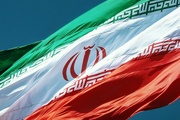







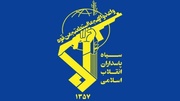

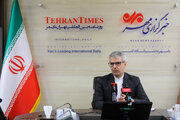



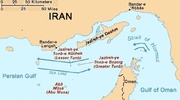



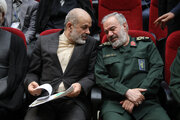

Your Comment